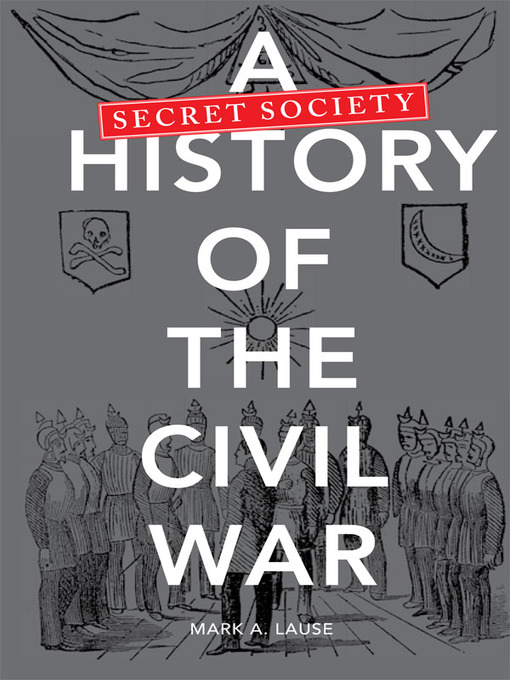Antebellum secret societies ranged politically from those with progressive or even revolutionary agendas to those that pursued conservative or oppressive goals. This book shows how, in the years leading up to the Civil War, these clandestine organizations exacerbated existing sectional tensions in the United States. Lause's research indicates that the pervasive influence of secret societies may have played a part in key events such as the Freesoil movement, the beginning of the Republican party, John Brown's raid on Harpers Ferry, Lincoln's election, and the Southern secession process of 1860-1861.
This exceptional study encompasses both white and African American secret society involvement, revealing the black fraternal experience in antebellum America as well as the clandestine operations that provided assistance to escaped slaves via the Underground Railroad. Unraveling these pervasive and extensive networks of power and influence, A Secret Society History of the Civil War demonstrates that antebellum secret societies played a greater role in affecting Civil War-era politics than has been previously acknowledged.
|Acknowledgments viiIntroduction ix
Prologue. Old World Contours: Revolutionary Politics and the Secret Society Tradition 1
PART I. Alternative Means
1. The Brotherhood of the Union: George Lippard and the Palestine of Redeemed Labor 21
2. Universal Democratic Republicans: Hugh Forbes and Transatlantic Antislavery Radicalism 37
3. Lone Stars and Golden Circles: The Manifest Destiny of George W. L. Bickley 51
PART II. Challenging Power
4. Higher Laws: The Fulcrum of African American National Identity 69
5. Decisive Means: Political Violence and National Self-Definition 86
PART III. Ends
6. The Counterfeit Nation: The KGC, Secession, and the Confederate Experience 107
7. The Republic Saved: Secret Societies and the Survival of the Union 125
Epilogue. Long Shadows: Lineages of the Secret Society Tradition in America 141
Notes 157
Index 203
Illustrations follow page 50|"Recommended."—Choice
"A brilliant study of the transnational forces and structures that framed the origins of the Civil War."—The Historian
"A page-turning secret society history based on solid research and accuracy."—Southern Historian
|Mark A. Lause is a professor of American history at the University of Cincinnati. He is the author of A Secret Society History of the Civil War and Race and Radicalism in the Union Army.

